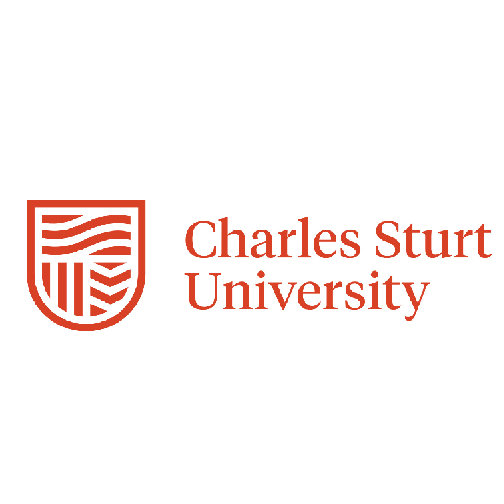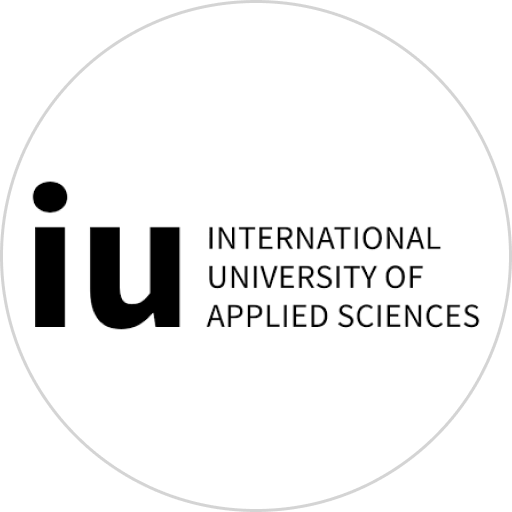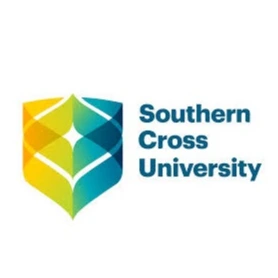• Study in Canada
Study in Canada without IELTS
5766 Reads
3 min Read
Many Canadian institutions offer admission to international students without requiring them to submit an IELTS score. Instead, one might have to submit alternative exam scores to demonstrate their English proficiency. This allows international students pursue their preferred program in Canada. By meeting specific criteria, one can access a range of academic opportunities in the country. Read the blog to know the process to study in Canada without IELTS.
For individuals aspiring to pursue higher education in Canada, demonstrating English proficiency via exams such as IELTS, TOEFL, PTE, or Duolingo is essential for both admission and visa procedures. Among these, IELTS holds global recognition, particularly in major English-speaking nations. While many Canadian academic institutions typically require IELTS scores, there exist universities and colleges where students can study in Canada without IELTS.
What is IELTS?
Reasons to Study in Canada
| World-renowned universities | Canadian universities and colleges are well-known and respected around the world for their high-quality education. Many of them are ranked among the best in the world. This means that a degree from a Canadian university will be recognized and valued by employers everywhere. |
| Advanced learning methods | Canadian universities use innovative and interactive teaching methods to make learning more engaging and effective. Canadian universities offer progressive and appealing method of teaching which helps students to develop the skills and knowledge they need to succeed in their studies and in their careers. |
| Research-focused programs | Universities in Canada offer a wide range of research-intensive programs. Students get the opportunity to conduct original research under the supervision of experienced faculty members. This can lead to publications in top academic journals and to valuable job opportunities in Canada. |
| Engaging campuses | Canadian university campuses are lively and friendly places where students can comfortably live and learn. Most universities in Canada offer great facilities like libraries, cafes, and bookstores, creating a supportive and connected environment for students to feel at home within their university community. |
| Support for international students | In Canada, international students get lots of help from universities. They offer things like English classes, help with studies, and money support. This support makes it easier for international students to adapt to life in Canada and do well in their studies. |
| Career opportunities | After graduation, international students who have studied in Canada can apply for a work permit that allows them to stay in the country and work for up to three years. The post study job opportunity can help students gain Canadian work experience. |
| Diverse culture | Canada is a multicultural country, and its universities reflect this diversity. Students from all over the world come to study in Canada which creates a vibrant and stimulating learning environment. |
Education System of Canada
IELTS Requirements for Canada SDS
Intakes to Study in Canada
| Intakes | Admission Months |
| Fall | A popular intake among international students, the fall intake in Canada begins in the month of September |
| Winter | The winter intake in Canada, starting in January, offers the best opportunity to enjoy breezy weather |
| Summer | The Summer intake in Canada typically commences between April and May, accessible for select programs and colleges |
Study in Canada Without IELTS
Universities to Study in Canada Without IELTS
Process to Study in Canada Without IELTS
| Alternate English | Substitute IELTS scores with other English |
| Proficiency Tests | Proficiency tests like TOEFL, Duolingo English Test, or PTE. |
| English Medium Schooling Evidence | Provide evidence of attending an English medium school for at least four years instead of submitting English proficiency scores. |
| Exemptions for English-Speaking Nations | Students from English-speaking countries might be exempted from submitting IELTS scores for Canadian university admission. |
| University-offered English Courses | Consider university-offered English language courses tailored for students unable to provide English proficiency scores as an alternative for admission. |
Alternative Tests for IELTS to Study in Canada
Canadian Student Visa without IELTS
Conclusions
FAQ
Get great articles direct to your inbox
The latest news, articles, and resources, sent straight to your inbox every month.
Popular Universities to Study Abroad
World class education waiting for you.

GEDU - Global Business Studies (GBS) - Malta Campus
South Eastern Region, Malta • 15 Programmes
Tuition Fee : EUR 0-0 / year
.webp)
Conestoga College - Cambridge Campus
Ontario, Canada • 44 Programmes
Tuition Fee : CAD 14000-15500 / year

Charles Sturt University - Bathurst Campus
New South Wales, Australia • 8 Programmes
Tuition Fee : AUD 22000-36000 / year

LaSalle College - Montreal Campus
Quebec, Canada • 41 Programmes
Tuition Fee : CAD 12500-32000 / year

IU International University of Applied Sciences - Berlin Campus
Berlin, Germany • 37 Programmes
Tuition Fee : EUR 0-0 / year


Southern Cross University - Gold Coast Campus
Queensland, Australia • 52 Programmes
Tuition Fee : AUD 29000-37000 / year
Popular English Language Proficiency Exams
Blogs and Articles
Curated content to keep you updated on the latest education trends, news and more.
Updated on • Jul 17,2025 05:33 PM IST • USA
PTE Accepted Universities in Australia
Updated on • Jul 17,2025 05:09 PM IST • PTE
Part-Time Jobs for International Students in Australia
Updated on • Jul 17,2025 03:44 PM IST • Australia
Updated on • Jul 12,2025 04:02 PM IST • USA
Updated on • Jul 11,2025 11:32 AM IST • Education
CPT vs OPT: Meaning, Difference, and How to Apply
Updated on • Jul 11,2025 10:40 AM IST • USA
Masters in Computer Science in UK: Top Colleges, Eligibility, Scholarships
Updated on • Jul 10,2025 11:29 AM IST • study in the UK
Highest Paying Jobs in the World
Updated on • Jul 08,2025 01:40 PM IST • Study Abroad
MBA in Australia for Indian Students: Best Universities, Requirements, Scholarship, Courses, Jobs
Updated on • Jul 08,2025 01:35 PM IST • Australia
Canada vs Australia: Which Country is Better for Indian Students in 2025?
Updated on • Jul 07,2025 12:46 PM IST • Education
France vs Germany: Which Is Better for International Students?
Updated on • Jun 30,2025 05:15 PM IST • Education
Top 10 Agricultural Universities in USA
Updated on • Jun 27,2025 05:25 PM IST • USA
Most In-Demand Future Careers in 2025
Updated on • Jun 26,2025 04:41 PM IST • Education
How Much Do Nurses Make in the U.S.?
Updated on • Jun 23,2025 03:59 PM IST • USA
Updated on • Jun 21,2025 02:00 PM IST • USA
MBA in UK: Universities, Eligibility, Types, and Career Opportunities
Updated on • Jun 19,2025 04:09 PM IST • UK • study in the UK
Scholarships in France for Indian Students
Updated on • May 29,2025 05:22 PM IST • France
Intakes in Dubai for Indian Students
Updated on • May 27,2025 03:34 PM IST • Study in Dubai
France Student Visa 2025 – Requirements, Fees, Checklist & Application Process
Updated on • May 23,2025 03:36 PM IST • France
MBA in France for Indian Students in 2025
Updated on • May 22,2025 05:35 PM IST • France
Related Blogs and Articles
A little effort to provide an authentic and reliable content for keen readers!!
Updated on • 22-05-2025 • Study in Canada
Job Opportunities in Canada for Indians: Salaries, Best Job Sites & More
Updated on • 20-05-2025 • Study in Canada
Updated on • 24-01-2025 • Study in Canada
Canada Student Visa Interview Questions
Updated on • 23-01-2025 • Study in Canada
Updated on • 15-01-2025 • Study in Canada
September/Fall Intake Canada 2025: Timeline, Universities & Admission Requirements
Updated on • 03-01-2025 • Study in Canada
Updated on • 02-01-2025 • Study in Canada
Life in Canada as an Indian Student
Updated on • 26-12-2024 • Study in Canada
Timeline for Winter (January) Intake in Canada 2025
Updated on • 21-12-2024 • Study in Canada
Updated on • 05-12-2024 • Study in Canada
Best Cities to Study in Canada
Updated on • 21-11-2024 • Study in Canada
Bachelor of Architecture in Canada
Updated on • 13-11-2024 • Study in Canada
Canada Study Visa - Fee, Requirements, How to Apply & More
Updated on • 05-10-2024 • Study in Canada
Study intakes in Canada - Fall, Winter & Summer
Updated on • 03-10-2024 • Study in Canada
Letter of Recommendation (LOR) for Canada: University Requirements, Sample and Writing Tips
Updated on • 26-09-2024 • Study in Canada
New Rules & Regulations in Canada for International Students
Updated on • 31-08-2024 • Study in Canada
Public Transportation in Canada for International students
Updated on • 29-08-2024 • Study in Canada
Healthcare in Canada for international students
Updated on • 27-08-2024 • Study in Canada
Courses in Canada for International Students
Updated on • 10-08-2024 • Study in Canada
Top PG diploma Colleges in Canada - Courses, Eligibility & More
Updated on • 06-08-2024 • Study in Canada












